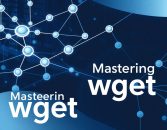
“Everyone should learn how to program a computer because it teaches you how to think.” – Steve Jobs.
This famous quote by Steve Jobs highlights the value of learning to code beyond its technical applications. It emphasizes that computer coding is not just about writing lines of code but rather about cultivating a specific mode of thinking. Individuals develop problem-solving skills and approaches to addressing challenges by learning to code. These can be applied in various aspects of life and work.
Jobs' quote underscores the importance of coding in fostering critical and analytical thinking. Coding has emerged as an indispensable skill in today's rapidly advancing world.
Once confined to computer science departments, coding is now a component of various disciplines. Its significance in college education cannot be overlooked. This article explores the role of coding in higher education. It focuses on how it unlocks computational thinking skills among students.
It plays a vital role in fostering innovation and problem-solving abilities. For students, embracing coding in college offers an exciting opportunity to develop a valuable skill set. Learning to code equips them with the tools to approach problems logically and systematically. This enhances their critical thinking and problem-solving abilities.
Whether pursuing careers in STEM or non-STEM fields, coding empowers students. It enables them to innovate and adapt to the evolving demands of the digital age. Moreover, coding projects often require collaboration and teamwork. This allows students to build communication and interpersonal skills.
As they gain proficiency in coding, students become active contributors. If you’re a student and lack time for paper writing, visit essayhub review and find your service to help you spare time and do the job for you. You can invest that time into learning how to code.
1. The Emergence of Coding in College Education

Traditionally, coding was associated with computer science majors. Its relevance was limited to software development. However, as technology permeates every aspect of modern life, the demand for coding has spread. Coding now plays a vital role in generating data-driven insights. It is crucial for optimizing decision-making processes.
Colleges have adapted their curricula to incorporate coding classes. They have recognized their potential to enhance critical thinking and creativity.
2. Computational Thinking-The Foundation of Coding
At its core, coding is an expression of computational thinking. It is a problem-solving approach that breaks down complex issues into smaller, more manageable parts. It involves analyzing data, developing algorithms, and implementing solutions step-by-step.
Computational thinking extends beyond programming languages. Fostering a mindset that encourages logical reasoning and systematic approaches is vital.
3. Fostering Analytical and Problem-Solving Skills
Coding in college education equips students with analytical and problem-solving skills. They are transferable to various domains. When students engage in coding exercises, they learn to approach challenges. They learn how to identify patterns and formulate logical solutions.
These skills prove invaluable in addressing complex issues across disciplines. Some are analyzing economic trends, optimizing supply chains, or understanding scientific phenomena.
4. Enhancing Creativity and Innovation
Contrary to the misconception that coding stifles creativity, it is, in fact, a medium of creative expression. Writing code allows students to manifest their ideas in practical ways. It can be developing a mobile app, designing a website, or creating interactive art installations.
Coding encourages students to think outside the box, experiment with new concepts, and innovate. It empowers them to transform abstract ideas into tangible products.
5. Encouraging Collaboration and Teamwork

In the real world, software development projects often require collaborative efforts. Introducing coding in college education fosters a collaborative spirit. Students often work together on coding assignments and projects.
They learn the importance of communication and division of labor to achieve common objectives. These collaboration skills are vital for coding projects and success in any professional setting.
6. Embracing Data-Driven Decision Making
Data has become the lifeblood of modern businesses and organizations. Analyzing data and drawing meaningful insights is essential in making informed decisions. Coding empowers students to handle large datasets.
Through coding, students develop the skills necessary to embrace data-driven decision-making processes. This equips them for success in an increasingly data-centric world.
7. Bridging the Gender Gap in STEM (Science, Technology, Engineering, and Mathematics)
One significant advantage of introducing coding in college education is its potential to bridge the gender gap in STEM. Historically, STEM disciplines have been dominated by men. Coding offers an opportunity to challenge these disparities.
Colleges can encourage more women to pursue careers in STEM fields, promoting diversity and innovation.
8. Empowering Non-Technical Majors
Coding is no longer the sole domain of computer science majors. Students from non-technical fields can greatly benefit from learning to code as well. For instance, journalism students can use coding to analyze data and visualize information.
Design students can create interactive user experiences through coding. By providing coding education across disciplines, colleges empower students with versatile skills.
9. Promoting Lifelong Learning
Coding is an ever-evolving discipline. Programming languages, tools, and frameworks change, requiring practitioners to update their skills. By introducing coding in college education, students cultivate a mindset of lifelong learning.
They understand the importance of staying current with technological advancements. They are better prepared for the dynamic job market.
10. The Integration of Coding
Coding in college education is challenging. While coding offers numerous benefits, its implementation requires careful planning and resource allocation. Colleges need to invest in qualified instructors and up-to-date software. This will help them deliver effective coding courses. Ensuring access and inclusivity is essential to prevent further marginalization.
Scholarships, workshops, and support networks can be crucial in encouraging students. By addressing these challenges, colleges can create an environment that empowers all students.
Conclusion
In conclusion, coding plays a pivotal role in modern college education. It unlocks computational thinking skills that transcend the boundaries of programming. Its integration across disciplines empowers students with analytical thinking and problem-solving abilities. The role of coding extends far beyond computer science; it has become an essential skill for students.
Colleges embracing coding education prepare students to succeed in the digital landscape—innovative and computational thinking teaches students how to contribute to a future.
Discover the insights you need! Visit Essay-Reviews.com now to access comprehensive and unbiased reviews. Unlock your full potential with our expert analysis and recommendations. Improve your grades and writing skills today!






